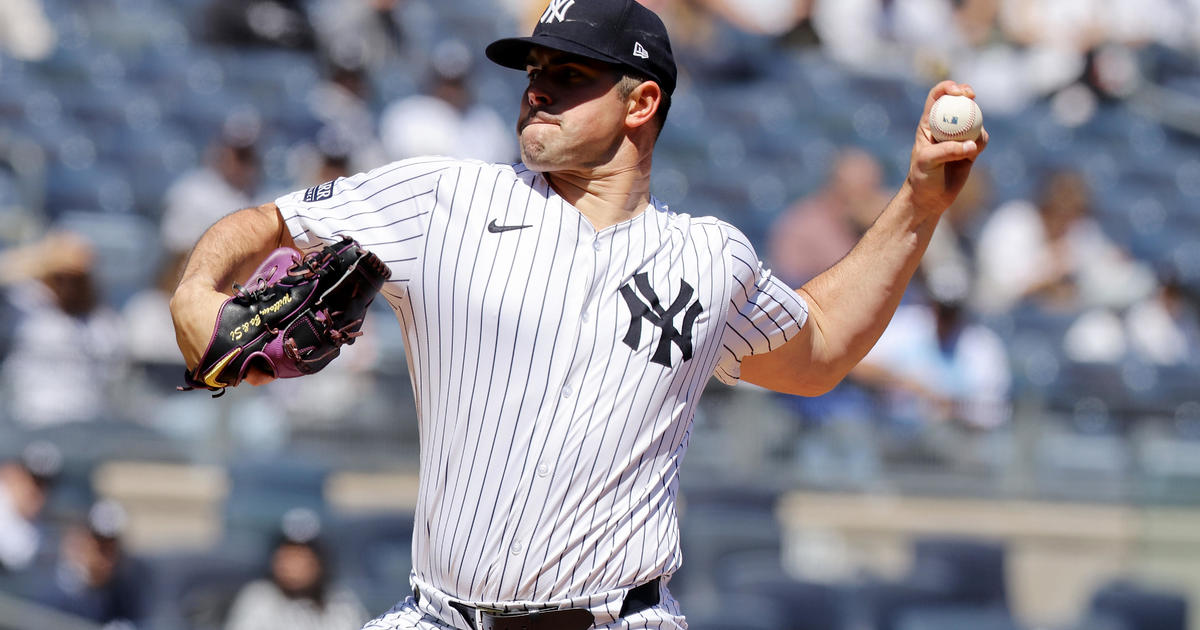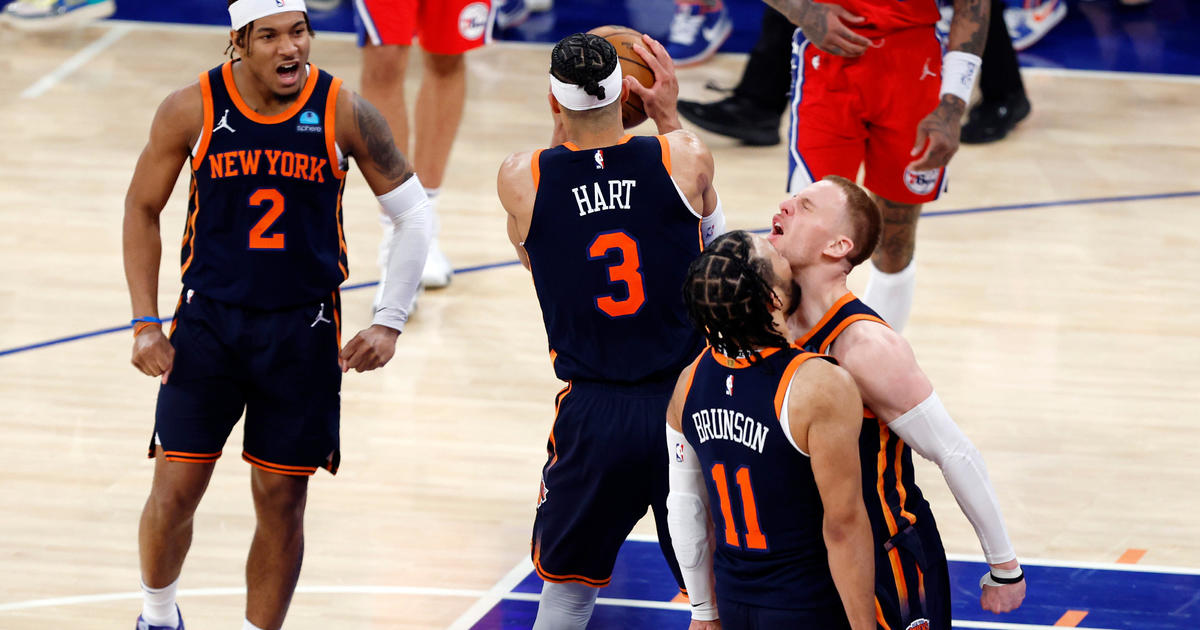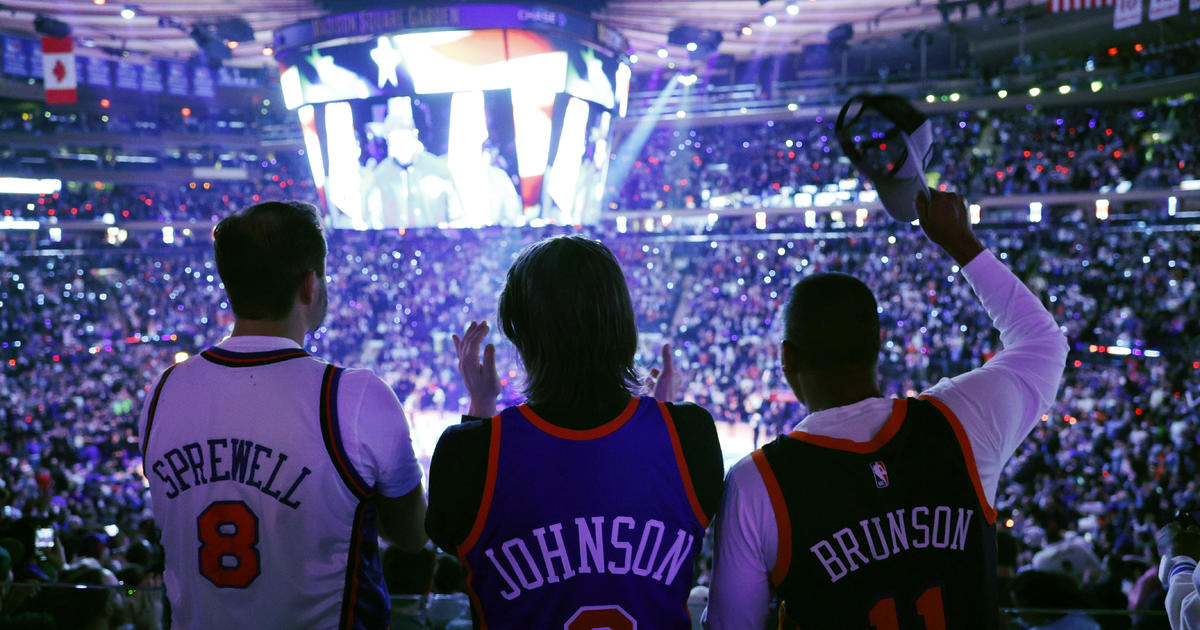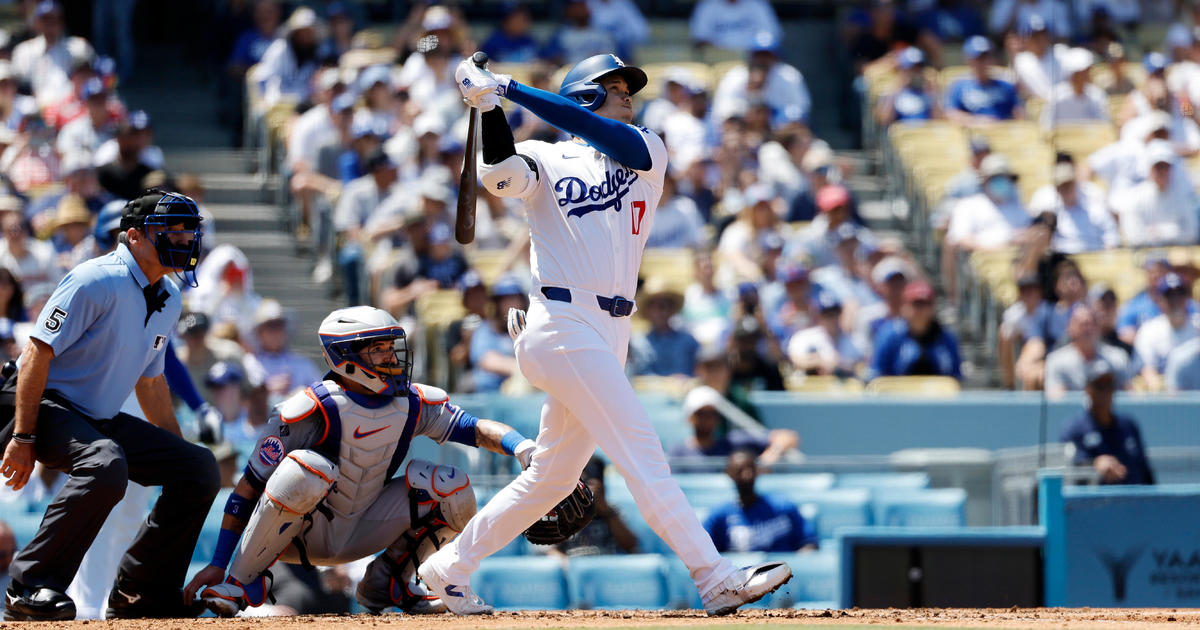Keidel: Torre's Amazing Success Was His Curse, But He Always Knew The Score
By Jason Keidel
» More Columns
He was a beacon of serenity and stature in the dugout.
Such is the prologue to Joe Torre's Hall of Fame plaque, before the formality of stats, regurgitating his numbers as a player and player's coach (or manager, to fit baseball's rigid lexicon).
But beyond his stellar, All-Star career, which almost got him in without more than 2,000 managerial conquests, Torre knows why he was standing next to Greg Maddux and a conga line of newly-minted luminaries in Cooperstown this past weekend.
He was a Yankee.
Born and bred in Brooklyn, not only was Torre not a Yankees fan, he wasn't even a Dodgers devotee. He adored the hated Giants and the heated rivalry of baseball's epic epoch.
Torre had no time for the Yankees, baseball and sports' preeminent franchise. Until George Steinbrenner called, turning Torre from recycled manager (tossed thrice onto the scrap heap) into a singular face in baseball history.
As the Yankees skipper, he had 1,173 wins and 767 losses, but it felt more like .500 from the commentary. He reached six World Series, winning four, yet we inspect and dissect the two he lost with a jeweler's eye. Sure, those Yanks could have easily gone 6-0. But would we not, in a second, sign up for 4-2 under Joe Girardi? G.I Joe has a fine baseball mind, but you won't see his visage in Cooperstown, Monument Park, or Central Park.
People are piling on Torre for forgetting to mention George Steinbrenner more prominently. This clearly is from the absurdly cynical segment of our population, looking to take issue with anything Torre does. And as time and history often do, they turn tyrants into teddy bears. It's also a microcosm of the way we've regarded Torre, far more focused on his gaffes than his gifts.
Steinbrenner is a local luminary based on his seven titles and willingness to funnel all his finances into winning, often ignoring his temper, tirades, and General MacArthur missives. But this idea that The Boss is somehow Santa Claus is revisionist history at its finest.
Steinbrenner was an ogre, who had more managerial partners than Liz Taylor had husbands. The old lion is lionized now because of our healthy impulse to respect the dead. But The Boss, who often compared himself to WW II gods and often spoke in military bromides, was hardly the cuddly kind.
But he did give Torre a chance to become what he is today -- a Hall of Famer. If not for Steinbrenner, Torre would not have been the avuncular face of our pastime. And without his 12 charmed years in pinstripes, he isn't holding that plaque, giving that speech, or draped in the soft fabric of immortality.
It's not a state secret that Torre departed under ornery climes. And Torre instantly admitted the error of his omission, and we should move on. No one has or ever will handle the white-hot, surgical dissection of New York City the way Torre did. No one else had Torre's innate ability to bask in Broadway's glow without burning in its glare.
New York fans are fickle, perhaps more than any other American city. How often did you hear a New Yorker lament Phil Jackson's trophy case as an adjunct of his blessed hardwood heavy hitters?
"Anyone can win with Jordan and Pippen!" we hollered, which quickly mutated into "Anyone could sleepwalk to a title with Shaq and Kobe in their primes!"
But when he returns to run the Knicks, our tone morphs from defiant to diplomatic. We suddenly adore his 13 rings, laud his Zen Master ethos and spiritual supremacy, the quintessential Knick and perfect hardwood handyman of basketball. "Phil will fix us!" is the new refrain.
So it was with Torre, who was Clueless Joe in 1995 and a savant in '98, when that legendary team stormed to 125 wins and a sweep of the Padres in the World Series.
And in the interest of candor, I called for Torre's head when he blew that 3-0 lead in the 2004 ALCS. If the biggest gag in baseball history weren't enough, we did it against Boston. Many of us would root for Red Russia over the Red Sox. It was the end of Torre's innocence and his perch as high priest of New York sports. It was wholly unfair, but even the most bejeweled faces of our generation have a clear shelf life. So while his spellbinding success is what made him a deity, it's also established the obscene expectations we developed.
The sheen was shaved off Torre after that. The Yankees never reached the Fall Classic after '04, often bumped from the playoffs by inferior teams with half the payroll. Torre had to subsequently beg for his job after he and Steinbrenner were no longer BFFs, and Torre was no longer untouchable.
After 2007, and yet another pre-World Series exit from the playoffs, Torre flew to Florida for his final round of contract talks. He was offered an incentive-laden deal, the brass's way of saying they wanted him to stay while deceptively discouraging his return.
And so it was that we chose to view Torre through the relative lens of the moment, rather than cherish the championships he so frequently gave us.
It reminds me of a story Torre told me when I interview him for amNew York in 2009. He had already turned the Dodgers into contenders, but still spoke in a bitter cadence when recalling his Yankee years (also the title of his tell-all book). And he still winced while recalling a conversation he had with a fan in the spring of 2002.
While signing autographs during the first days of spring training, a fan assured -- or admonished, depending on his tone -- that he would fare better that season. The chat astonished Torre, who couldn't comprehend losing Game 7 of the World Series by one run in the ninth inning as a failure.
Such were the stratospheric expectations that came with his instant and infinite success. After 1996, during which Torre wielded a golden wand, almost every move working eerily well, he told Steinbrenner that the Yanks would lose the first two games to the Braves and then win the next four -- which is exactly what happened.
Then came 1998, which was the best team in MLB history. If you don't think a record of 125-50 is anything but that, then we may not be watching the same sport.
Then Torre won two more, making the Pat Riley 3-peat a reality. Then came the heartbreaking loss in Arizona. The most painful moment in this sportswriter's life. Not because we were three outs from four straight World Series wins, but because we lost just weeks after 9/11, while the embers still glowed at Ground Zero, strings of smoke still snaking up toward the moon, the mangled bodies still smoldering under the rubble.
It felt like that team was not only New York, but also America's Team, fighting for freedom and winning for the world ideal that cowardly killers of 3,000 innocent people don't win. Ever.
Not to mention the way by which we got there, with all the game-ending heroics and the first time we ever were able to label someone Mr. November. That would be Derek Jeter, of course, who wound up becoming Captain America and five years from joining Joe in Cooperstown.
But it's a bit myopic to assert that anyone could have racked up rings with those Yankees. Running a baseball team isn't just a matter of chalkboard fodder or bunts or hit-and-run or defensive alignments or algorithms of OBP and OPS.
It's about knowing when to put who where and when, who gets the carrot, stick, and Stick Michael pouring new blood into a most fertile farm system. It's easy to see why the team won on paper. But not how it was built. And Torre's Midas magic happened too often to brand it amateur or arbitrary.
F. Scott Fitzgerald said there were no second acts in American life. Clearly the wildly talented-yet-tormented writer wasn't much of a sports fan. Turns out Torre's fourth managerial act was the one that got him into the archive of Americana.
You know his contours and cadence by heart by now. His slouched seat in the dugout; his brow buried under his cap; his big nose and brooding countenance scanning the field; his slow stroll to the mound; hands buried in his back pockets, hunched so far forward you expected him to fall forward.
And he did it with an old-world dignity and nobility. Just moments after the worst loss in baseball history, Torre had the unprecedented decency to call Terry Francona to congratulate him, despite his Red Sox ripping the souls out of the Bombers, essentially ending the dynasty and our ethereal love affair with Torre.
No. 6 was an odd number in Yankees history, the only early number not associated with mythology. While we knew Jeter would join his single-digit predecessors in Monument Park and upstate New York, no one would have though that No. 6 would round out the regal pack of pinstriped legends.
For millions of New Yorkers, No. 6 was No. 1 in the five boroughs and beyond. And while the Hall of Fame occasionally rewards endurance over dominance -- compilers, they're often called -- there's no doubt that Joe Torre belonged on the dais on Sunday. He may be the last Lord of the Rings in Yankees history.
And for that he gets more than a nod. He gets his proper place in immortality.
Follow Jason on Twitter at @JasonKeidel
You May Also Be Interested In These Stories



